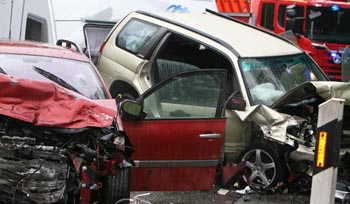Geneva, May 16: Road injuries are the biggest killer of teenagers globally, according to a latest WHO report which found that over 3,000 adolescents die every day, totalling 1.2 million deaths a year, from largely preventable causes.
 In 2015, more than two-thirds of these deaths occurred in low- and middle-income countries in Africa and South-East Asia. Road traffic injuries, lower respiratory infections, and suicide are the biggest causes of death among adolescents.
In 2015, more than two-thirds of these deaths occurred in low- and middle-income countries in Africa and South-East Asia. Road traffic injuries, lower respiratory infections, and suicide are the biggest causes of death among adolescents.
Road injuries were the leading cause of adolescent death among 10–19-year-olds, resulting in about 115,000 adolescent deaths, the report by World Health Organisation (WHO) said.
Older adolescent boys aged 15–19 years experienced the greatest burden. Most young people killed in road crashes are vulnerable road users such as pedestrians, cyclists and motorcyclists.
"Adolescents have been entirely absent from national health plans for decades," said Flavia Bustreo, Assistant Director-General, WHO.
"Relatively small investments focused on adolescents now will not only result in healthy and empowered adults who thrive and contribute positively to their communities, but it will also result in healthier future generations, yielding enormous returns," said Bustreo.
The top five causes of death for all adolescents aged 10–19 years in 2015 were: Road traffic injury with 115,302 deaths, lower respiratory infections (72,655 deaths), self-harm (67,149), diarrhoeal diseases (63,575) and drowning (57,125).
The report reveals stark differences in causes of death when separating the adolescent group by age (younger adolescents aged 10–14 years and older ones aged 15–19 years) and by sex.
Looking only at low- and middle-income countries in Africa, communicable diseases such as HIV/AIDS, lower respiratory infections, meningitis, and diarrhoeal diseases are bigger causes of death among adolescents than road injuries, WHO said.
The leading cause of death for younger adolescent girls aged 10–14 years are lower respiratory infections, such as pneumonia — often a result of indoor air pollution from cooking with dirty fuels.
According to the report, pregnancy complications, such as haemorrhage, sepsis, obstructed labour, and complications from unsafe abortions, are the top cause of death among 15–19-year-old girls.
Suicide and accidental death from self-harm were the third cause of adolescent mortality in 2015, the report said.
Self-harm largely occurs among older adolescents, and globally it is the second leading cause of death for older adolescent girls. It is the leading or second cause of adolescent death in Europe and South-East Asia.
"Improving the way health systems serve adolescents is just one part of improving their health," said Anthony Costello, Director of Maternal, Newborn, Child and Adolescent Health at WHO.
"Parents, families, and communities are extremely important, as they have the greatest potential to positively influence adolescent behaviour and health," Costello added.





Comments
Add new comment